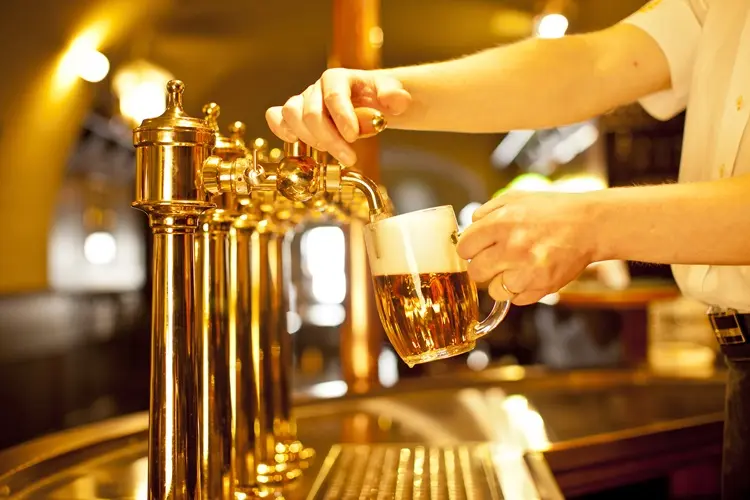While wine and beer are distinct in many ways, they both share the common trait of causing increased urination. This phenomenon is often more noticeable with beer, and many people wonder why they pee a lot when drink beer. To address this question comprehensively, we must delve into the science of alcohol’s effects on the body, particularly focusing on beer’s unique properties.
Understanding Diuresis
Diuresis is the increased production of urine by the kidneys. Several factors can induce diuresis, including the consumption of certain beverages, medications, and medical conditions. When it comes to beer, there are several reasons why it can lead to frequent urination:
Alcohol as a Diuretic:
Alcohol, regardless of its form—be it beer, wine, or spirits—is a well-known diuretic. It inhibits the release of vasopressin, also known as antidiuretic hormone (ADH), from the pituitary gland. ADH plays a crucial role in the kidneys’ ability to retain water. When its release is inhibited, the kidneys excrete more water, leading to increased urine production.
Volume of Consumption:
Beer is typically consumed in larger volumes compared to other alcoholic beverages. A standard beer serving is usually around 12 ounces, whereas a glass of wine is about 5 ounces. The sheer volume of liquid consumed contributes to more frequent trips to the bathroom.
Carbonation:
The carbonation in beer can also play a role in increasing urination. Carbonated drinks can speed up the rate at which the stomach empties its contents into the small intestine, where alcohol is absorbed more quickly into the bloodstream. This rapid absorption can amplify the diuretic effect of alcohol.
Composition of Beer:
Beer is composed primarily of water, with alcohol being a significant component. The high water content of beer means that you are consuming a large amount of liquid, which naturally leads to increased urination.
The Role of Kidneys
The kidneys are the body’s filtration system. They filter blood, removing waste and excess substances, which are then excreted as urine. When alcohol is consumed, it is metabolized by the liver, and its byproducts enter the bloodstream. The kidneys filter these byproducts out of the blood, contributing to the production of urine. The inhibition of ADH by alcohol exacerbates this process, leading to a higher volume of urine.
Effects of Dehydration
Ironically, despite increasing urine production, alcohol consumption can lead to dehydration. When you urinate more frequently, your body loses more water than it takes in, especially if you are not compensating by drinking non-alcoholic fluids. Dehydration can cause a range of symptoms, including dry mouth, headache, and dizziness. It is crucial to stay hydrated by drinking water alongside alcoholic beverages to mitigate these effects.
Comparisons with Wine
As a wine connoisseur, it is worth noting the differences between wine and beer in terms of their effects on urination. While both contain alcohol and can lead to increased urination, wine is typically consumed in smaller volumes, resulting in a less pronounced effect. Additionally, wine usually has a higher alcohol content than beer, meaning that smaller quantities can achieve similar diuretic effects. However, the total volume of liquid consumed plays a significant role, making beer more likely to cause frequent urination.
See Also: Can Non Alcoholic Beer Make You Feel Drunk?
Practical Tips for Managing Urination While Drinking Beer
Understanding why beer makes you pee a lot can help you manage the effects more effectively. Here are some practical tips:
Pace Yourself: Drinking beer slowly can help reduce the frequency of urination. Sipping rather than gulping allows your body more time to process the alcohol and liquids.
Stay Hydrated: Drinking water alongside beer can help mitigate dehydration and reduce the urge to urinate frequently. Aim to drink a glass of water for every beer consumed.
Plan Ahead: If you know you will be drinking beer, plan your bathroom breaks accordingly. Choose a venue with accessible restrooms to avoid discomfort.
Limit Consumption: Moderation is key. Limiting the amount of beer you drink can help reduce the diuretic effects and the need for frequent bathroom trips.
Opt for Lower Alcohol Content Beers: Beers with lower alcohol content may have a less pronounced diuretic effect. Consider choosing light beers or those with a lower ABV (alcohol by volume).
Scientific Insights
Recent studies have provided deeper insights into the mechanisms behind alcohol-induced diuresis. Research indicates that alcohol’s inhibition of ADH is dose-dependent, meaning that higher alcohol consumption leads to greater inhibition of ADH and, consequently, more significant diuresis. Additionally, individual variations in metabolism and kidney function can influence the extent of alcohol’s diuretic effects.
Conclusion
The answer lies in the combination of alcohol’s diuretic properties, the volume of beer consumed, carbonation, and the high water content of beer. Understanding these factors can help you manage the effects of beer consumption and ensure a more enjoyable drinking experience. As a wine connoisseur, I appreciate the nuances of various beverages and the science behind their effects on the body. Whether you prefer a fine wine or a refreshing beer, moderation and hydration are key to maintaining balance and enjoying your drink responsibly.


